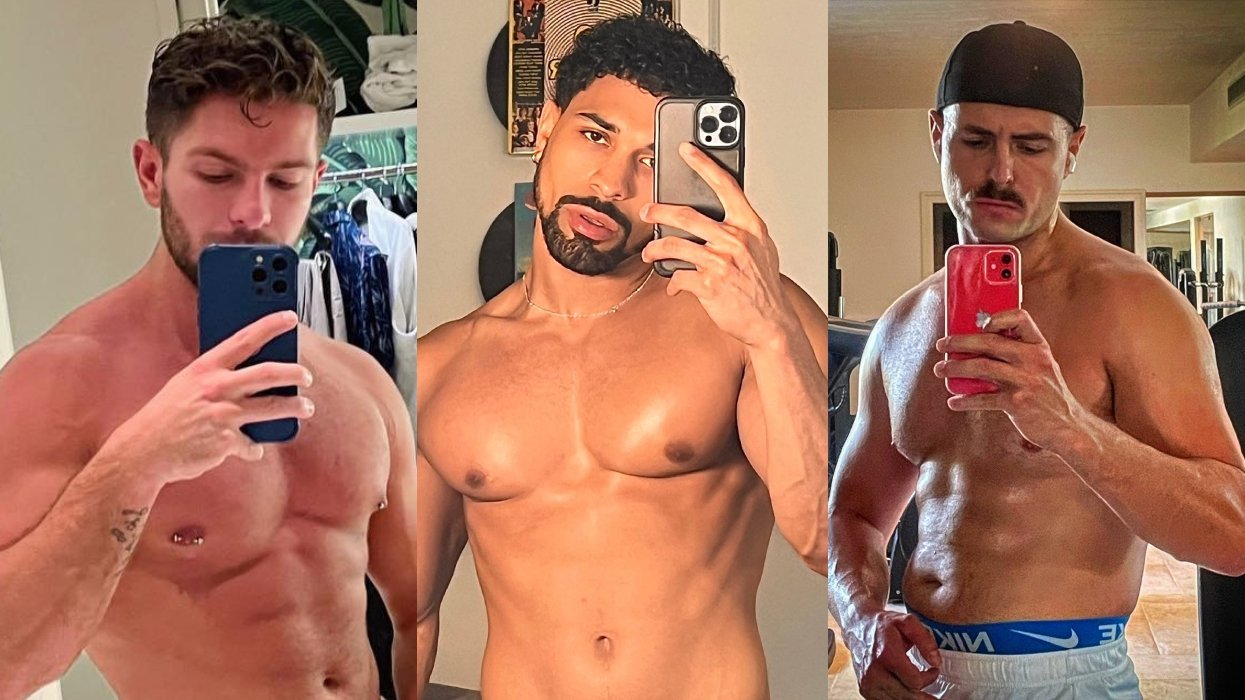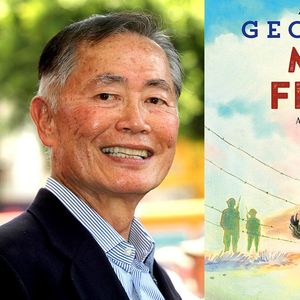Cloud Atlas, the film adaption of the David Mitchell novel by the Matrix-masterminds Lana and Andy Wachowski along with Tom Tykwer (who most remember from Run Lola Run), has been in cinemas for a couple of weeks now. But enough people aren't watching it. And they should.
It's a soaring epic in six stories that span the Victorian era into the post-apocalyptic future. Starring a plethora of Hollywood's best like Tom Hanks, Halle Berry, Susan Sarandon, and Hugh Grant, the interwoven narratives all present a domino effect in the battle for good against the forces of evil, the toppling of restrictive power-structures and the victory of progress.
Revolution, however small or large, is the central focus that ties these very different vignettes together. From a friendship between a slave and a white man in colonial New Zealand to a uprising lead by an android in the future city of Neo-Seoul, each story supports a need for change and kindness against the urge to live in a dog-eat-dog world, a message so very apt after the elections that just passed.
Cloud Atlas mirrors the same need for change that Americans voted for in re-electing President Obama, particularly in its depiction of same-sex love. The second narrative takes place in 1930's Britain where the bisexual Robert Frobisher, played by Ben Whishaw, is a budding composer who apprentices under the aging musical-genius, Vyvyan Ayrs played by Jim Broadbent. James D'Arcy plays Rufus Sixsmith, Frobisher's lover who receives letters about his progress which peaks with his masterpiece entitled The Cloud Atlas Sextet.
Frobisher's life unravels when Ayrs claims the piece as his own, blackmailing Frobisher with threats of exposing his sex-life. Frobisher shoots Ayrs and leaves his manor, writing one last letter to Sixsmith and then shoots himself. His anecdote ends with one of the most moving scenes in the movie as Sixsmith discovers his body and mourns for the loss of his beloved.
Within the narrative of revolution, Frobisher's contribution is quite small but no less important. What Frobisher's tale represents is the stifling nature of the power-structures in place. Instead of representing evil as a tyrannical political regime as in other parts of Cloud Atlas, evil is embodied in the hateful nature of hetero-normative patriarchal society. Much like all the other plots it represents the struggle for freedom, for the development of progress and indeed, for love. What's so stirring about the Frobisher tale is that it presents to viewers what may initially seem a loss, but is in fact a victory -- Frobisher may have died but his letters live on, the next character in the series of events is given them by Sixsmith himself and inspires her own courage, her own revolution.
What Cloud Atlas illustrates is the power of voicing opposition and proclaiming one's rights, that whatever achievements we can claim in the fight for freedom is important, whether we get what we want in this lifetime is not. The importance is instead on the effort that can inspire change, small victories that can pave the way for the next generation. The icons of the past, like Oscar Wilde and others who fought valiantly for the acceptance of homosexuality in an unaccepting time, may not have lived to see the birth of the gay-rights and steady fruition of the movement but it may have never mobilized without their bravery. The film concludes on this incredibly fitting message; "My life amounts to no more than one drop in a limitless ocean. Yet what is any ocean, but a multitude of drops?"



















































































